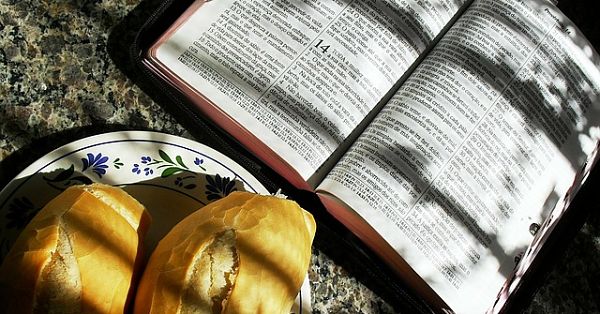 How are we to organize our Sunday worship time? What is most important during our worship services?
How are we to organize our Sunday worship time? What is most important during our worship services?
You can measure what is most important by (1) what is done and (2) how much time is spent on what is done.
We can do no better than reminding ourselves of what has been done since the earliest church. We find an early congregational gathering in Justin’s First Apology, 67:
And on the day called Sunday, all who live in cities or in the country gather together to one place, and the memoirs of the apostles or the writings of the prophets are read, as long as time permits; then, when the reader has ceased, the president verbally instructs, and exhorts to the imitation of these good things. Then we all rise together and pray, and, as we before said, when our prayer is ended, bread and wine and water are brought, and the president in like manner offers prayers and thanksgivings, according to his ability, and the people assent, saying Amen; and there is a distribution to each, and a participation of that over which thanks have been given, and to those who are absent a portion is sent by the deacons. And they who are well to do, and willing, give what each thinks fit; and what is collected is deposited with the president, who succours the orphans and widows and those who, through sickness or any other cause, are in want, and those who are in bonds and the strangers sojourning among us, and in a word takes care of all who are in need. But Sunday is the day on which we all hold our common assembly, because it is the first day on which God, having wrought a change in the darkness and matter, made the world; and Jesus Christ our Saviour on the same day rose from the dead. For He was crucified on the day before that of Saturn (Saturday); and on the day after that of Saturn, which is the day of the Sun, having appeared to His apostles and disciples, He taught them these things, which we have submitted to you also for your consideration.
Some observations, beside the obvious: this is how many churches still order their worship services.
This occurs on Sunday (day of creation and day of new creation/resurrection), and early church historians are sure this is what worship gatherings looked like across the empire. The whole church from the area gathered together.
Order:
1. Reading from the “memoirs of the apostles” (=Gospels) or the Prophets (Isaiah to Malachi, probably). Notice “as long as time permits.” Which means they didn’t read a verse or two but longer passages.
2. The leader (called “President” here) instructs and exhorts the “imitation of these good things.”
3. Everyone stands and prays.
3. Eucharist: prayers and thanksgivings (eucharistia). People “Amen” the presidents prayers.
4. Eucharist: Distribution of the bread and wine and water. Deacons take the elements to those who cannot attend.
5. Offerings: “they who are well to do, and willing, give what each things fit.” President receives and distributes to “orphans and widows” and the needy and imprisoned and visitors.
This is not strictly then only a memorial of what happened but more a celebration of Christ’s presence. It was a re-enactment and participatory event. Those celebrating entered into the last supper and the cross event. Robert Louis Wilken, in his amazing The Spirit of Early Christian Thought, says “The past becomes a present presence that opens a new future.”
How do we know this? In the paragraph prior this is what Justin wrote in explanation of Eucharist:
And this food is called among us Εὐχαριστία [the Eucharist], of which no one is allowed to partake but the man who believes that the things which we teach are true, and who has been washed with the washing that is for the remission of sins, and unto regeneration, and who is so living as Christ has enjoined. For not as common bread and common drink do we receive these; but in like manner as Jesus Christ our Savior, having been made flesh by the Word of God, had both flesh and blood for our salvation, so likewise have we been taught that the food which is blessed by the prayer of His word, and from which our blood and flesh by transmutation are nourished, is the flesh and blood of that Jesus who was made flesh. For the apostles, in the memoirs composed by them, which are called Gospels, have thus delivered unto us what was enjoined upon them; that Jesus took bread, and when He had given thanks, said, “This do in remembrance of Me, this is My body;” and that, after the same manner, having taken the cup and given thanks, He said, “This is My blood;” and gave it to them alone.
Eucharist, then, was not in the earliest church something done a few times a year but an integral feature in weekly worship.
We gather so often today to hear a sermon and it occupies often almost all of the worship service; they gathered together to read the Bible, to be instructed from what was read, to pray together, to celebrate the presence of Christ in Eucharist, and to collect funds for those in need.











